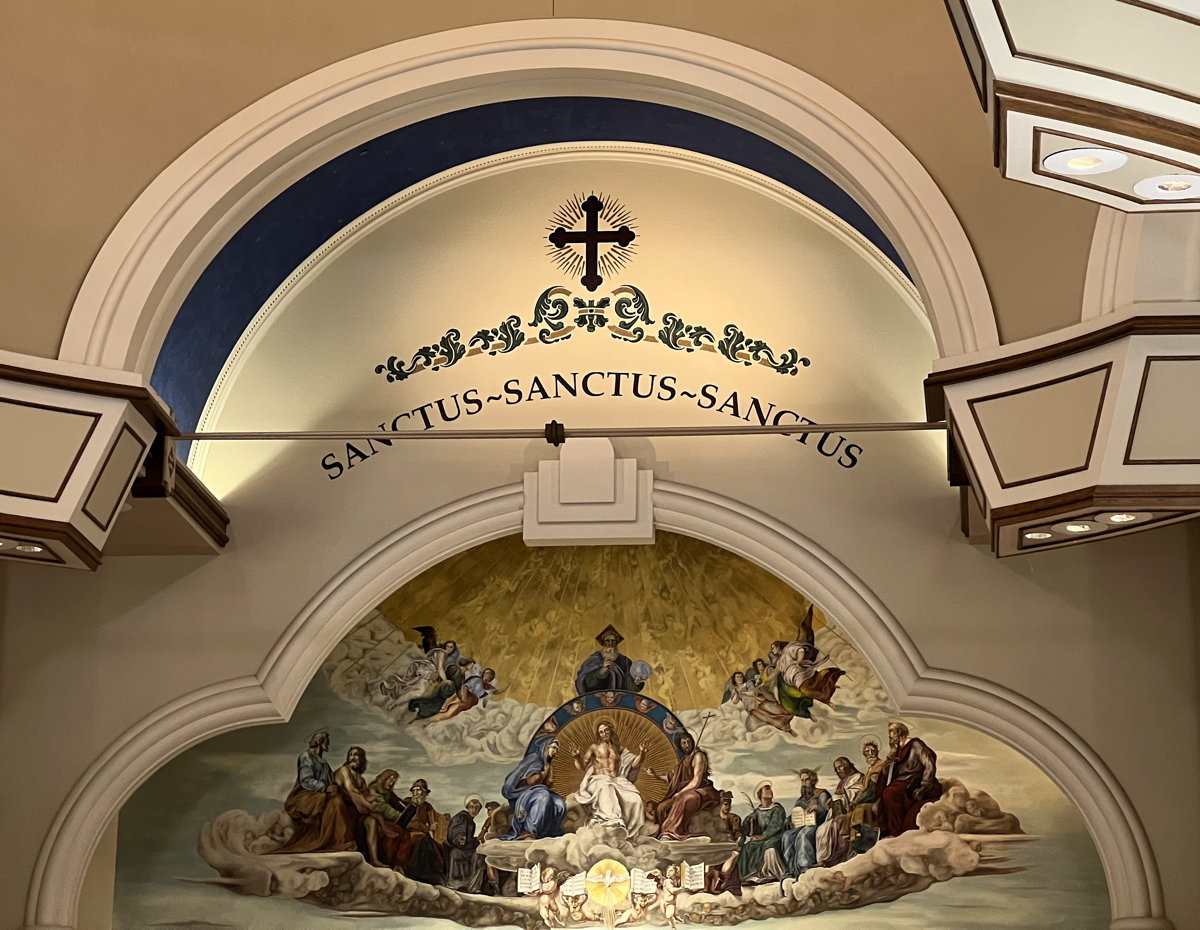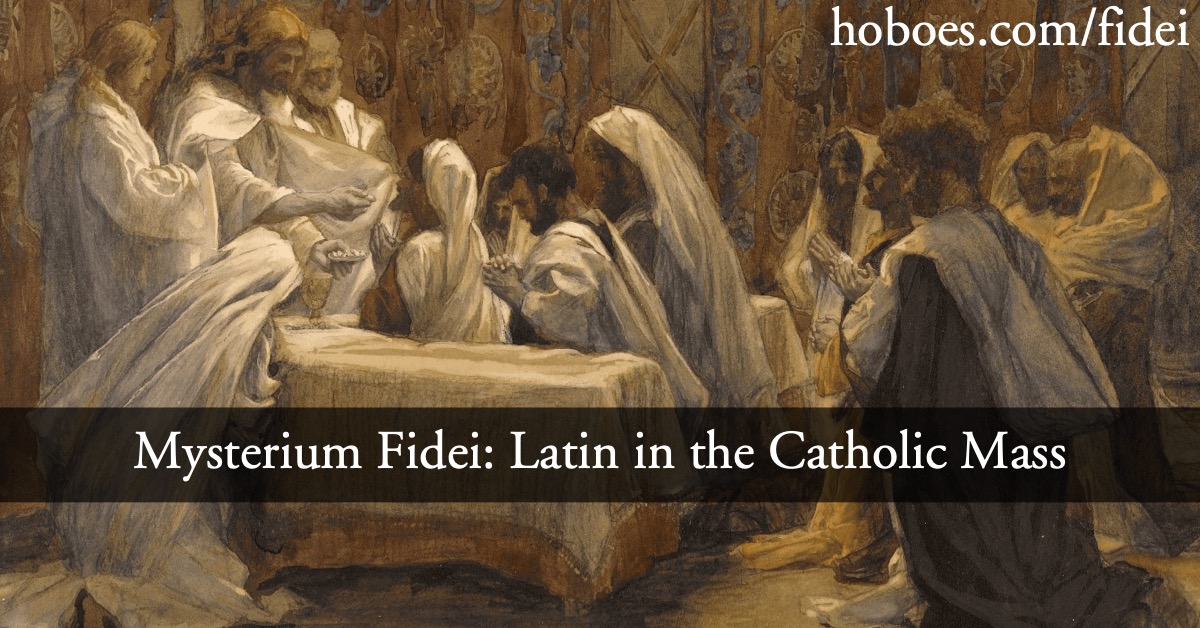How un-Christian is the prosperity gospel?
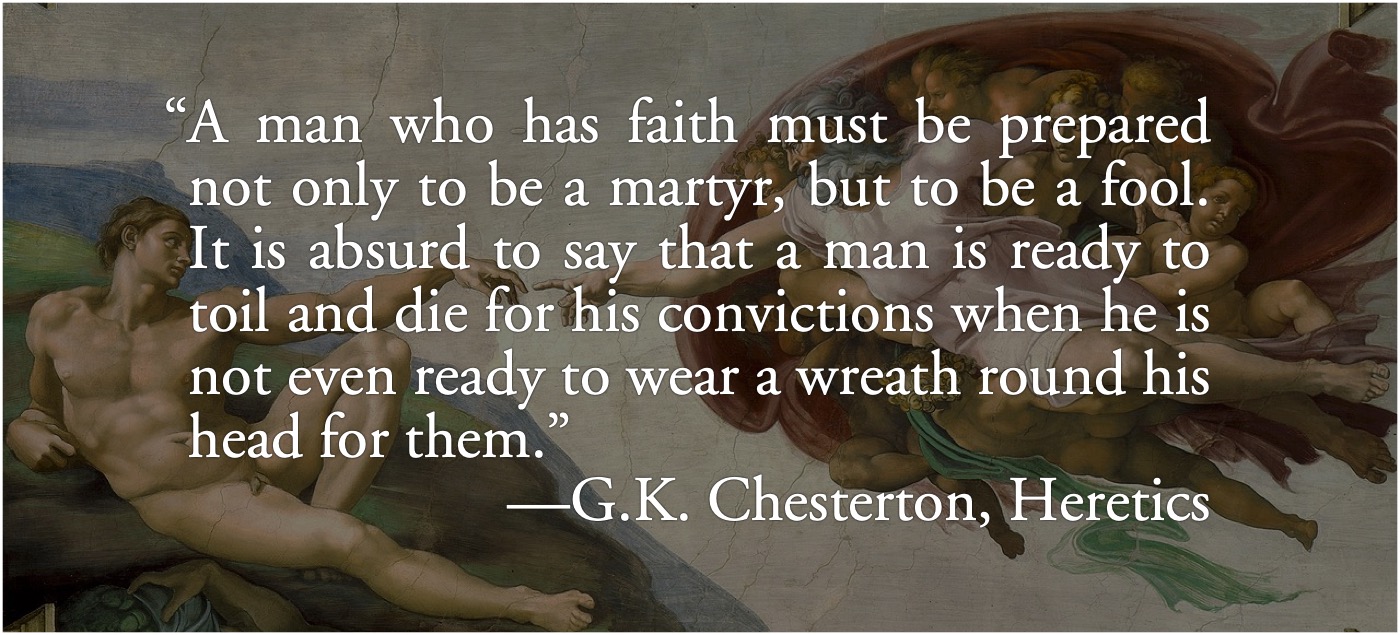
One of the weird results of the February shooting at Joel Osteen’s Lakewood Church is seeing how bipartisan the hatred for Osteen, and the so-called prosperity gospel1, is. The reaction in comments and even in some public postings come very close to advocating violence against him. They start with a superficial acknowledgment that it’s too bad the violence occurred against a child, and then use the violence as a platform to complain about the existence of Osteen, Lakewood Church, and the message of those kinds of megachurches.
These responses highlight that there are still popular people who are nonetheless open season, literally, for attacks from both sides of the political spectrum. The left hates Osteen because he’s Christian, and the right hates him because he’s not.
So there are obviously a lot of people who do not like prosperity gospel preachers and prosperity gospel. But by the same token, a lot of people are clearly fans of either the preachers or the message. I know very little about prosperity gospel. I did, with a friend, see Joel Osteen once, and there’s definitely a sense of asking God for material things that seems way over the top for me as a Catholic.
Catholics have moved away from asking God for earthly things. In the period between when I went to Mass regularly as a child and when I returned to the church several years ago, the Ecce Agnus Dei2 response changed from “Lord, I am not worthy to receive you, but only say the word and I shall be healed.” to “Lord, I am not worthy that you should enter under my roof, but only say the word and my soul shall be healed.”
Now, that’s probably not a change in meaning. Judging from the original Latin, it was probably always supposed to be a plea for spiritual healing, and my understanding is that this was a change in the American missal, not the worldwide missal. It was a change to better translate the Latin missal of Rome.
Domine, non sum dignus ut intres sub tectum meum, sed tantum dic verbo, et sanabitur anima mea.
“Anima” is normally translated as “soul” or “spirit”. But it’s important to remember that the Bible story that line comes from was about physical healing. The centurion in Matthew 8:5-13 asked Jesus to heal his servant, not his soul.
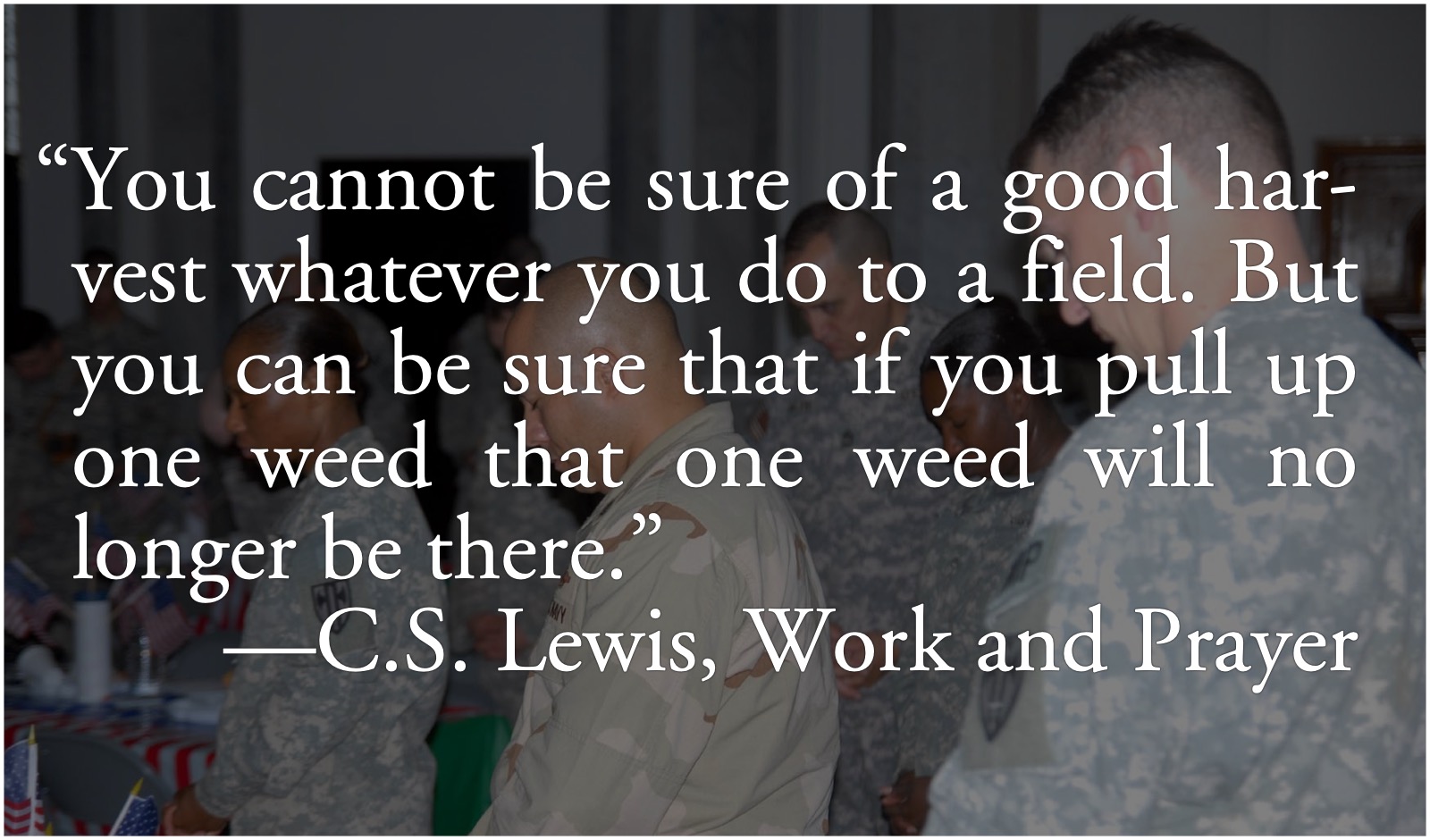
When he entered Capernaum, a centurion approached him and appealed to him, saying, “Lord, my servant is lying at home paralyzed, suffering dreadfully.”
He said to him, “I will come and cure him.”
The centurion said in reply, “Lord, I am not worthy to have you enter under my roof; only say the word and my servant will be healed.
There’s a very important message in the centurion’s version of the events referenced by this plea. He had faith that he could ask for earthly aid and that Jesus would provide it.
We also, of course, ask for material things every time we say the Lord’s Prayer. “Give us this day our daily bread” is a plea for every day sustenance. And my sense from that lone visit to Lakewood is that this is what most people were asking God for. They’d lost their jobs, or they were drowning financially, or they were overwhelmed emotionally and spiritually from loss, from disease, from the relentless buffets of worldly hatred. These are worthwhile things to pray for assistance with and from.
More importantly, however, I remember nothing of what Osteen said except for this: too many times we pray to God as if we don’t believe in God or prayer. We pray for help—and then we ignore all the help God sends our way.
If we prayed and believed our prayer was being answered, if we believed that God has the power to help and that God was sending His help, we would, like the centurion, act a lot differently. We would act like we believed that help was on its way. We would examine every blessing and trial and ask, is this an answer to my prayers? Is this an opportunity? If I ignore this person or this situation that has just come my way, even treat it as a trial to be avoided, am I refusing God’s answer?
Osteen’s message was, once you pray for something, act as if you believe the answer is on the way. Act as if the world is filled with God’s gifts to us. Examine every new person and event in your life with the expectation that some of them will be in answer to your prayers. Believe that God answers prayers, and you will act differently than if you fear there is no God or that God does not care for you.
Too often, we pray and then complain that God doesn’t answer prayer. We may even assume that God replied no, but we never listened for an answer.
Certainly, looking back on my own life, I can see with hindsight that there were times when God answered my prayers but I did not have the confidence to recognize the gifts He was all but forcing me to accept. As often as not I assumed that the opportunities He was sending me were problems to be avoided.
At best, I trusted my own judgement more than God’s. At worst, I didn’t believe God was taking any part in my life.

Mark 11:24 is specific:
Amen I say to you, whatever you ask when you pray, believe that you shall receive, and it shall be done to you.
St. Augustine of Hippo wrote in more detail about confidence in the Lord:
God certainly desires our greatest good more than we ourselves desire it. He knows better than we by what way it can come to us; and the choice of ways is wholly in His hands, as it is He Who governs and regulates all that occurs in the world. It is, then, most certain that in all chances that can befall, whatever may happen, will always be best for us.
Do you desire security? Here you have it. The Lord says to thee, “I will never abandon thee, I will always be with thee!” If a good man made you such a promise, you would trust him. God makes it, and do you doubt? Do you seek a support more sure than the word of God, which is infallible? Surely, He has made the promise, He has written it, He has pledged His word for it, it is most certain.3
You can petition God, and God will answer. Most of us choose to sleep through the watches when God answers. Sometimes, because we’re uncomfortable relying on religious belief in our daily lives. Sometimes, because we’re afraid of what a divine answer would mean about life on Earth. Sometimes, because we know His answers mean work and it’s easier to believe there was no answer. It’s easier to suffer.
I do not pretend to know how God will answer. It may be that God will sometimes say no. But will His refusal be a single word? As C. S. Lewis pointed out, even Jesus in the Garden of Gethsemane was not told, in response to his repeated prayers, ok, no problem. There won’t be a crucifixion. Isn’t hearing a “no, but…” from God something worth listening for?
I think we’ve gone too rationalistic in our relationship with God. We’re afraid to ask him for things we humanly want, not just because we’re afraid of the answer but because that would be “pagan” or “treating God like a genie”.
But to badly paraphrase Chesterton and Lewis, pagans had one advantage over modern Christians: they really believed they could speak with their gods, directly and through oracles, of human things—and hope for a beneficial response. This was also a belief and hope held by Jesus’s earlier followers and in the early Church.
We’ve lost that belief and that faith in the modern world. But that belief and hope is part of what God has written into our hearts. It is worth restoring to our lives.
- November 26, 2025: Latin in the Mass: Holy, Holy, Holy Lord
-
In a recent issue of Benedictus—a word I’ll be talking about in this post, as it happens—I ran across the following question about Latin masses, quoted from the Tradivox Catholic Catechism Index vol. 14:
Why is the Mass said in Latin?
1) Because this language comes from Rome, whence we received our faith; 2) because, being a dead language, it does not change in the course of time like living languages, and 3) because thereby the unity and uniformity of the Church, even in her public service, is represented and preserved.
That was written back when most masses were celebrated in Latin. There’s a lot to be said for the unity and precision that comes with presenting the Mass worldwide in a single, unchanging language. In the modern era, the near-complete lack of comprehension of that language is probably an insurmountable obstacle.
- Agnus Dei
- Mysterium Fidei
- Sanctus, Sanctus ⬅︎
This installment, I’m going to decipher the Sanctus. That is, the Holy, Holy, Holy that comes at the start of the Eucharistic Prayer.
Latin English Sanctus, Sanctus, Sanctus Holy, Holy, Holy Dominus Deus Sabaoth. Lord, God of hosts Pleni sunt caeli et terra gloria tua. Heaven and earth are full of your glory. Hosanna in excelsis. Hosanna in the highest. Benedictus qui venit in nomine Domini. Blessed is he who comes in the name of the Lord. Hosanna in excelsis. Hosanna in the highest. Sanctus, sanctus, sanctus
It’s obvious enough from the identical repetition in both versions that sanctus means “holy”. How does it get there, however? Sanctus actually means a whole bunch of things in Latin, and several of them are likely play into the full meaning of the word in the prayer. Consecrated, sacred, divine, and just are all possible meanings along with holy.
- July 16, 2025: Forgetting yesterday’s grace
-

I doubt I could have gotten these photos without the cloud cover; I attempted to hold the solar filter over the iPhone’s camera lens, and it was a mess.
Being human means forgetting. We have almost as many names for forgetting as the mythical eskimo has for snow. The most commonly called-out form of amnesia among my somewhat geeky circle is named after a prominent physicist; Gell-Mann Amnesia is almost a kind of logical fallacy. We read something in the newspaper, or hear it on the news, and it happens to be something we’re familiar with. Perhaps it’s to do with our actual profession, or a dedicated hobby, or perhaps it’s to do with where we live or maybe even an event we took part in.
We listen to that news, recognize, perhaps angrily, that they not only got it wrong but that got it absolutely in reverse—Michael Crichton, in his famous explanation of Gell-Mann Amnesia called it “wet streets cause rain”—and then move on to news about something we’re not familiar with.
And then trust that they got it right. We completely forget how wrong they were ten seconds ago.
Another form of amnesia is the But what have you done for me lately amnesia. Just because someone’s been beneficial to us in the past, if they’re not being beneficial to us now we discount them. This can be a reasonable or unreasonable form of amnesia depending on the circumstances.
There’s another form of amnesia that is somewhat related to what have you done for me lately, a sort of in-the-moment amnesia bordering on ingratitude, where what’s happening now is perceived as unrelated to what happened in the past. We can thank God one moment and then forget all about Him minutes later.
The Monday, April 8, eclipse last year happened to go directly over my house at about lunchtime. I had about a three minute totality. About a week out from the eclipse the weather forecasts started coming in and even up to a few days beforehand the forecast was for full clouds and heavy rain on Monday and Tuesday. I suspect a lot of people canceled their trips or moved them to a different locale with better forecasts. I did not—part of the appeal of this eclipse was that I could literally see it from my backyard. So, I prayed for better weather and remained in the area.
- March 5, 2025: Mysterium Fidei: Mortem tuam annuntiamus, Domine
-
From the Agnus Dei I’ve chosen to move to the Mysterium Fidei.
- Agnus Dei
- Mysterium Fidei ⬅︎
- Sanctus, Sanctus
Unlike the Agnus Dei, the Mysterium Fidei is not a linear translation to English. Here’s the Latin:
Priest: Mysterium fidei!
Congregation: Mortem tuam annuntiamus, Domine, et tuam Resurrectionem confitemur, donec venias.
Or, as we say it in English:
Priest: The mystery of faith!
Congregation: We proclaim your Death, O Lord, and profess your Resurrection, until you come again.
One of the unique and very misleading things about the Agnus Dei is how little it resembles modern English. There are only two words that even remotely resemble their English counterparts. Dei is likely the root of deity, but to be honest I’m not sure how common that word is outside of fantasy role-playing, and old-school fantasy gaming at that. Peccatorum is obviously related in some way to peccadillos in a slightly watered-down way1 but I don’t think I’ve ever heard the word peccadillos spoken out loud. I’ve only seen it in books, and then rarely.
The Mysterium Fidei, on the other hand, is filled with words that look maddeningly familiar, even if you discount the word mortem which is mainly familiar because our justice system uses Latin extensively. Mysterium. Fidei. Annuntiamus. Domine. Resurrectionem. Confitemur. And for the most part, what they look like is what they are, vaguely. Annuntiamus is announce—or proclaim. Resurrectionem is in fact resurrection. Confitemur… well, that’s a little different. But if you squint you can see it.
So let’s take it phrase by phrase:
- December 18, 2024: The Master Kneels
-
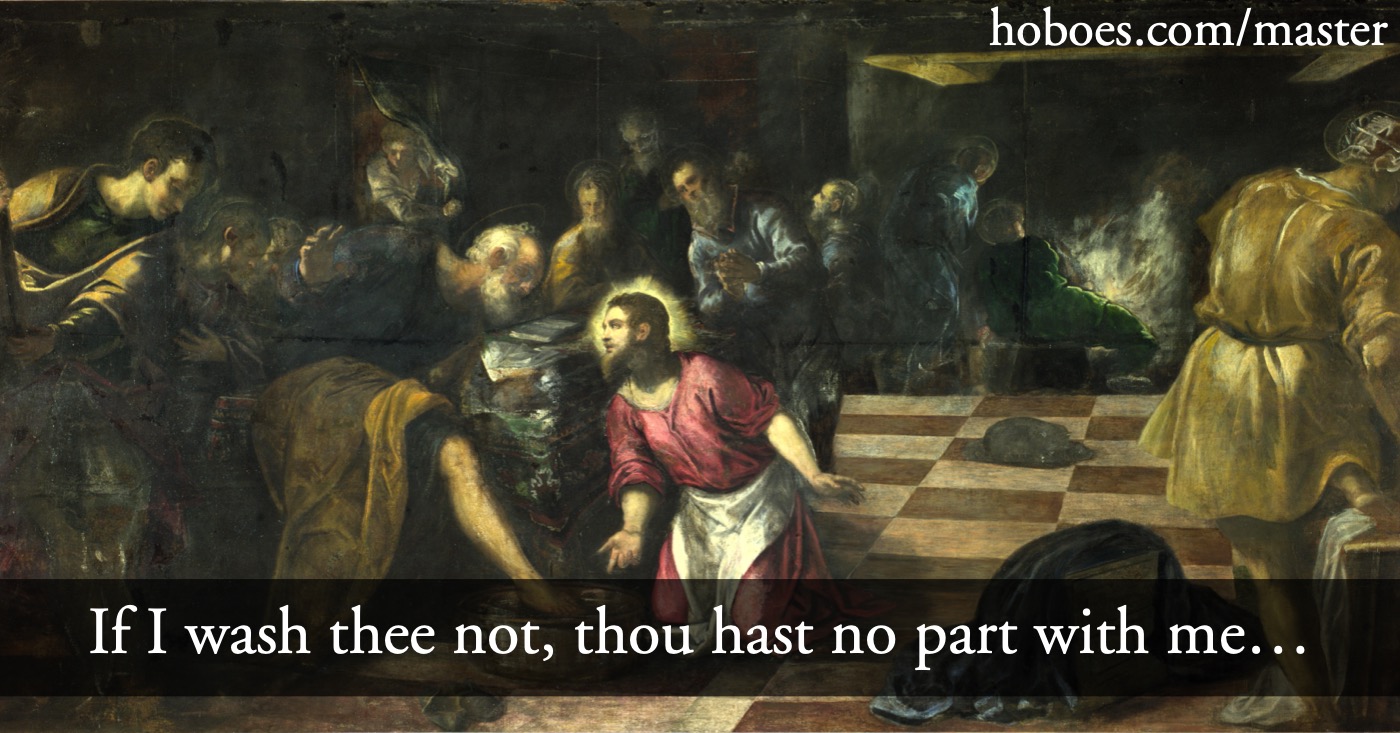
The somewhat sporadic ritual where rich white liberals wash the feet of minorities has to be the weirdest bit of racism to come out of the compulsory racist teachings of the institutional left. In the first draft I had the adjective “unintentional” in front of “racism”, but any people who publish “white culture” posters that claim it’s white culture to plan for the future, use logic, and understand cause and effect probably understand very well what they’re doing.
It’s interesting to compare this bit of specious invocation of religion with Dr. Martin Luther King, Jr.’s I have a dream speech. I have a dream only made sense to people who understood the Biblical references King was making, whether it be people who were themselves religious or people who had seen Charlton Heston in The Ten Commandments as little as three years earlier.1
King’s speech, in other words, required knowledge of its listeners. This modern washing of the feet, in contrast, requires ignorance, at least if it’s going to be taken at face value. If you’re familiar with the event it’s drawing on, it doesn’t make any sense.
The foot-washing in the Bible that this modern foot ritual resembles was the Son of God washing the feet of imperfect man to cleanse them of their sins. The explanation that racists have made up for the ritual that if “even Jesus” can wash the feet of the apostles, surely we can wash the feet of those we’ve oppressed falls completely apart to anyone who actually goes back to the Biblical narrative it’s invoking.
But… it’s not “even Jesus”. It’s only Jesus. Unless the foot-washing goes both ways, this was not something that man can emulate, not without a lot of hubris, especially in the form it takes: it’s always the white liberal in these rituals taking the place of Jesus, and the minority is always the person getting their foot washed.
Jesus was literally washing their feet because he was better than them. Peter said, no way you’re going to wash my feet, I should wash your feet. Jesus replied, in effect, you’re dirty and I’m not. You are not worthy to enter my home unless I wash your feet.
- December 11, 2024: Agnus Dei: Latin in the Catholic Mass
-
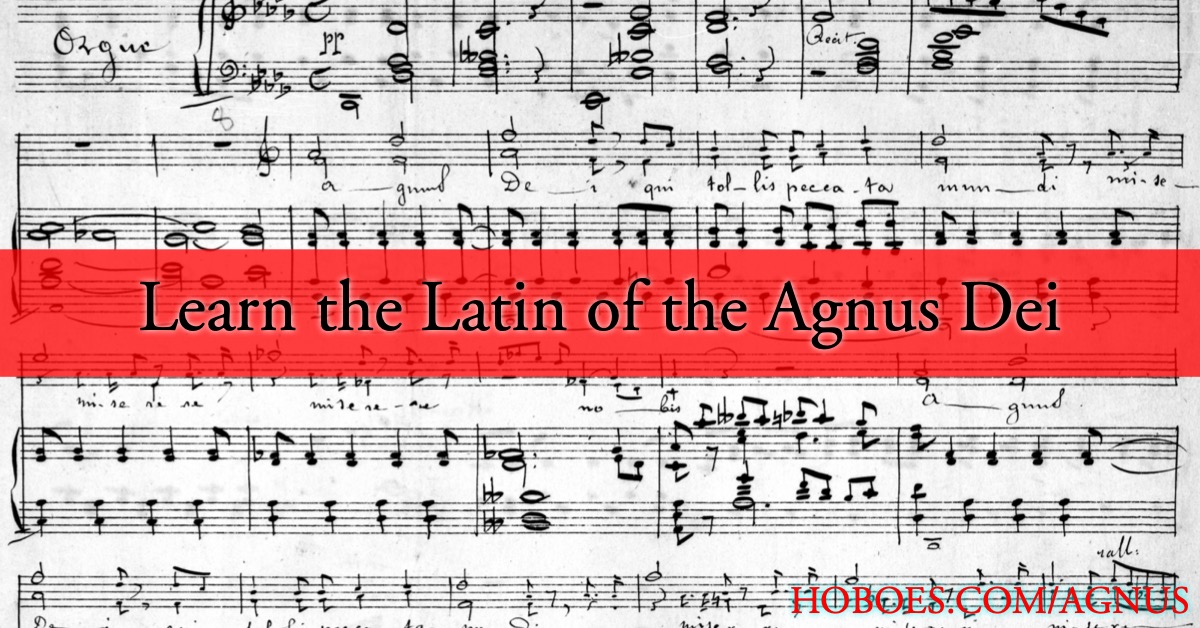
My local Catholic church uses occasional Latin phrases during the Masses leading up to Christmas and Easter. Our pastor reasoned that (a) Latin is the official language of the Church, (b) it makes a distinction between the different seasons, and (c) it “draws us deeper into the mystery of the liturgy”.
- Agnus Dei ⬅︎
- Mysterium Fidei
- Sanctus, Sanctus
This inspired me, on seeing an old Latin grade school textbook at a library book sale, to attempt to learn basic Latin. The book I’m using is Jenney, Thompson, and Smith’s First Year Latin from 1953. This is a very dense book; I’m currently about 19% of the way through it after several years. Had I been one of the students it was meant for back in the fifties, this would have been a lot of work to complete in one year!
I’m not going to talk about pronunciation. Textbook Latin and Catholic Latin are pronounced differently, and Catholic Latin tends to be pronounced at least slightly differently in different churches. My experience solely in American churches is that Catholic Latin basically follows the rules of Italian pronunciation. If you know those rules, follow them but pay attention to how your church might be doing things a little differently. If you don’t know those rules, just pay attention and you’ll get it. The most obvious difference between Italian and American pronunciations is that the “ch” sound is a hard “k” in Italian; the soft “c” of American English (receive, decipher) is pronounced as the American English “ch” (church, for instance…) and with basically the same rule: when the “c” is followed by an “i” or an “e”.
With all that out of the way, one of the simplest prayers sung or spoken in Latin during Mass is the Agnus Dei. Many Catholic prayers are titled by their first words in the original Latin. So the prayer that begins, in English, as “Remember, O most gracious Virgin Mary” is called “Memorare” because Memorare is the first word in the original Latin—it means “remember”. And the prayer that begins “Lamb of God” is called the “Agnus Dei” because those are its first words in the original:
- November 27, 2024: Starvation, sharing, and charity
-

One of the reasons for starvation in the world today is that no one cares. But not in the way most people think about it when they say that no one cares.
The easy assumption, made by everyone from American politicians to so many Catholic charities, is that starvation in the world is a failure of sharing, and we need to convince more people to share. And certainly, sharing is a Good.
But even ignoring fake charities and charities that have devolved into Brazil-like bureaucracies more concerned with their own survival than their ostensible beneficiaries, there is demonstrably enough sharing in the world, especially originating from the United States, to end starvation across the globe. The reason we continue to see starvation is a failure of acceptance.
If the failure of acceptance could be solved—if we could convince foreign governments to accept gifts rather than deny them or, worse, filter them through layers of value-destroying corruption—there would be more than enough sharing already today.
This is true even in, perhaps especially in, the United States, where we can see the stultifying bureaucracy that eats up most of every tax dollar taken from us in the name of sharing with our fellow Americans.
Further, sharing itself would increase if there were greater acceptance of it, if it was obvious that our sharing went to the poor who need it rather than bureaucracies that do not. It’s one thing to share and see a lessening of hunger and to see the poor lift themselves out of poverty because of our aid. It’s entirely another thing to share and see food wasted and rotting, to see money lost in corruption and a Brazil•-level bureaucracy, to see only people with the time to be professional recipients have the time to navigate the welfare system in the United States or the charity system abroad.
At some point, knowingly giving more money to dictators and corrupt bureaucrats changes from charity to a wasteful and deadly form of virtue signaling. Charity has to mean giving effectively or it isn’t charity at all but mere vanity.
If there’s an agreed-on name for this preaching among its practitioners, I do not know what it is, so I will use “prosperity gospel” throughout this post.
↑Ecce: Behold; Agnus: Lamb; Dei: of God.
↑From Benedictus, October, 2022, p. 5.
↑
- The Everlasting Man: G. K. Chesterton at Internet Archive
- “There are two ways of getting home; and one of them is to stay there.”
- Lakewood Church
- “At Lakewood, we base all of our beliefs on the authority of Scripture. In every way, we strive to maintain Biblical standards of living and leadership. We believe that living life according to God's Word is the way to an abundant, fulfilling life.”
- Matthew 8 at United States Conference of Catholic Bishops
-
 Matthew, chapter 8: the cleansing of a leper, the healing of a centurion’s servant, the cure of Peter’s mother-in-law, the calming of the storm, and the healing of the Gadarene demoniacs.
Matthew, chapter 8: the cleansing of a leper, the healing of a centurion’s servant, the cure of Peter’s mother-in-law, the calming of the storm, and the healing of the Gadarene demoniacs.
- Mere Christianity: 6. The Rival Conceptions of God: JM
- “We have transitioned now from Lewis’ proof of God’s existence, called the moral argument, to the book’s heart, namely a summary and a case for Christian doctrine.”
- The new missal: an overview of the changes: Jerry Filteau at National Catholic Reporter
- “‘And with your spirit’ reflects more literally the original Latin, ‘Et cum spiritu tuo,’ and is based on a fundamental new translation policy that the Holy See announced in its 2001 instruction Liturgiam Authenticam by the Vatican Congregation for Divine Worship and the Discipline of the Sacraments.”
- Problems with Prayer: Arthur W. Lindsley at C.S. Lewis Institute
- “Prayer was an important part of C.S. Lewis’s life. But problems he had with prayer as a boy initially led to the loss of whatever nominal faith he had. When he was young (about nine years old), his mother died.”
More Bible
- The Master Kneels
- Whose feet are being washed in these rich white liberal rituals? “Ye call me master…”
- Satire in the vineyard: The parable of Lolita and the sheep
- Opposite stories in the New Testament are a lot like modern satire. When Nabokov tells the parable of Humbert Humbert, he is telling us that everything in the news is false. When Jesus tells the parable of the lamb, he is telling us that everything the world values is false.
More prayers
- Memorial to our classmates
- Memorial and prayer at the hanging basket memorial.

